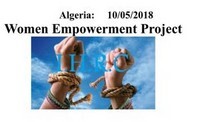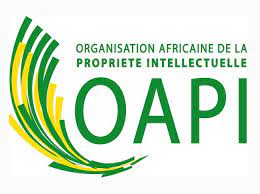Women Empowerment
What we do > Actions > Human Rights > Algeria
 Women Empowerment Project- People's Democtaratic Republic of Algeria
Women Empowerment Project- People's Democtaratic Republic of AlgeriaAmong the diverse and vital roles played by women
- As an educator, teacher, farm worker, entrepreneur and leader in the community
- Women form the backbone of communities in the city and the countryside. They are almost everywhere, making critical contributions to food production, processing or marketing. In fact, because women are produced, treated and nurtured, they are an essential element of the family and of their community.
In developing countries, women make up 45% of the workforce. It is a key tool in promoting diversification of sustainable agriculture, enhancing bio-consolidation, reducing waste and waste, or in health and even supporting industries to improve living standards.
The improvement of women's social and economic status within and outside the family
Has a direct impact on food security and economic and social development. For example, evidence shows that if women have the opportunity to control additional family income, they tend to spend more on food, health care, clothing and education than do men.
The empowerment and empowerment of women is reflected in improving the overall well-being of children, families and communities, which in turn contributes to long-term social and economic growth.
- What can be done to empower women?
Evidence from Africa, Asia and America consistently shows that significant economic and social improvements can be achieved through expanding women's access to productive resources and technology, including agriculture, industry, market opportunities, labor and social protection, and enhancing their role in decision-making.
Women's empowerment policy interventions and assistance in bridging the gender gap in all fields:
These interventions include, for example:
• Facilitate women's access to:
. Agricultural resources such as supporting agricultural projects such as (raising cows, sheep, raising meat, eggs, food processing projects, bee breeding projects, etc.)
Education and financial services.
• Investing in technology
Improve infrastructure that alleviates the power of women and free up their time for more productive activities.
• Promote their access to decent jobs
Enabling them to connect to national and international labor markets.
To protect them through the strict application of justice with respect to their protection and the safeguarding of their rights.
Establish specialized societies and centers to follow up their activities and provide them with the necessary guidance to enable them to reach their goal.
Establish mini-institutions to eliminate unemployment for educated women
Helping women produce financial and moral support to enable them to achieve their project on the widest scale.
Ensure the health of women, especially those with no income.
The beneficiaries of developmental projects are subject to training courses, and the conditions of age and the level of education are not set for enrollment in specialized training centers.



